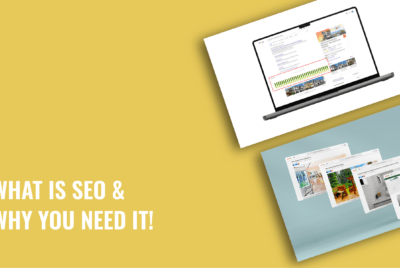Your website is a digital storefront. A person walking past will see what you’re offering –
enticingly displayed, showing how it could fit into their lifestyle and giving them a clear image of what life would be like if they bought it. To keep your digital storefront attractive and relevant, you need to be able to quickly and easily change and update it. With websites, this requires a website building platform. There are endless options on the market that let you do this. Not all of them are equal, however. Here are some of the most popular platforms available and why you need to consider the long term management of your website when deciding which one to invest in.
The Rise And Fall Of DIY Website Building Platforms
As the internet grew and more people gained access to it, a need arose for people to be able to create a website themselves as a personal blog or for promotional purposes. This is where platforms like WordPress, Squarespace and Wix were born.
At first glance, Squarespace and Wix offer a better deal for business growth, providing a Freemium service where you can create a basic website for free, with a small payment only required once you add on additional services. Not having to manage your maintenance or deal with updates as you’d have to do with a costlier and more complex platform like WordPress.
Sounds like a good deal, right? Here’s why it isn’t.
Squarespace is a ‘software as a service’ website builder, which means you pay a monthly fee to keep your website online, including elements such as your domain and hosting. However, having a third party manage your entire site means it can be deleted at any time without warning and without them being obligated to back up your content on their servers. If there any bugs or errors on your site, they’re not obligated to fix it on your schedule, and there’s no compensation should any downtime result in you losing sales. You also can’t control the back end of the forms you place on your website, so there’s no way to measure and monitor the emails sent to you.
Then there’s Wix. You can build your website mostly for free, and it will look good on the outside, but behind the scenes, it will be another story entirely. You won’t be able to control your page structure, titles or any other elements essential to optimising your website for SEO and conversions. You won’t be able to install analytics to see what’s working and what isn’t. You also can’t easily make your website mobile friendly or have it backlinked from other sites.
Choose either of these platforms, and you’ll pay less and do less work. However, there’s a risk that you won’t get the SEO results you desire or that you’ll have to rebuild your website from scratch in the future, costing you time and money and losing you sales.
Why You Need Back End Control
Your website is too important to leave entirely in someone else’s hands. If you’re wondering how you’re supposed to manage it on top of running a business, you should realise that there are platforms that allow you to retain control – as long as you have a team to support you.
Why WordPress?
WordPress is one of the world’s most popular website platforms, with both new businesses and large corporations like Sony, Disney and PlayStation using it. WordPress, like other platforms, is free to use, with additional plugins, extensions as well as hosting available for a fee. So why choose this platform when it’s likely to be more expensive and require more hands-on work?
WordPress gives you as much control as you desire over your website, and by extension, your online brand. You can build a website to your exact specifications, with an unlimited amount of responsive templates to choose from. Functionalities such as SEO, analytics and payment gateways can easily be added, with you retaining control over how, when and why they work. There are also plugins available to secure your site and make it GDPR compliant.
You might require a specialist in WordPress to customise your website and manage its installations, troubleshooting and updates. However, you’ll retain propriety of your site, its contents and its database. Should you part ways with your developer, your site will remain online and scalable, no matter how big your business gets or how much it changes.
Your website is as an investment. Is it worth it to cut costs with a cheap platform that has limited functionality if you’re going to pay heavily later? Instead, view it as a long-term business asset, and choose a platform that lets manage it as you see fit.
How Do I Protect my Website From Being Hacked?
There is a big misconception happening in the website world that you can’t get hacked? Well that is until it’s done, and you then want to blame the designer or your hosting company.
But what if the problem is all your fault?
I have heard about two clients in the last month that have been hacked due to NO MAINTENANCE being applied to their site. It’s the same old story, you have a website designed and hosted. That’s its right, set and forget!!!
Well that used to be the case but now days with the influx of hackers or a scammers, they are figuring many many new ways to get into your website and cause trouble. Especially if you hold client information or have a shop that they can access personal and financial information via. Today it’s never been more important to have a monthly maintenance package with your Designer / Developers or Hosting company. You can’t blame these companies if you aren’t committed to maintaining the security and integrity of your active website. Old plugins can open nice holes for them to hack you. Staying up to date is now a matter of must, not should.
I find there is an incredible knowledge gap between what your designer, developer and hosting companies do and how they should be used. The simple answer her (without boring you for hours while I explain it all) is You need to have a checklist that looks like below:
- Design & Develop Website
- Make live – via Hosting
- Maintain – Get a Monthly Maintenance package, they will update your platforms, plugins, themes etc and ensure the security of your site. It’s a must have in the new hacker age.
If you would like details of hosting companies with Maintenance packaged that we recommend, please let us know. We are happy to share their details.


